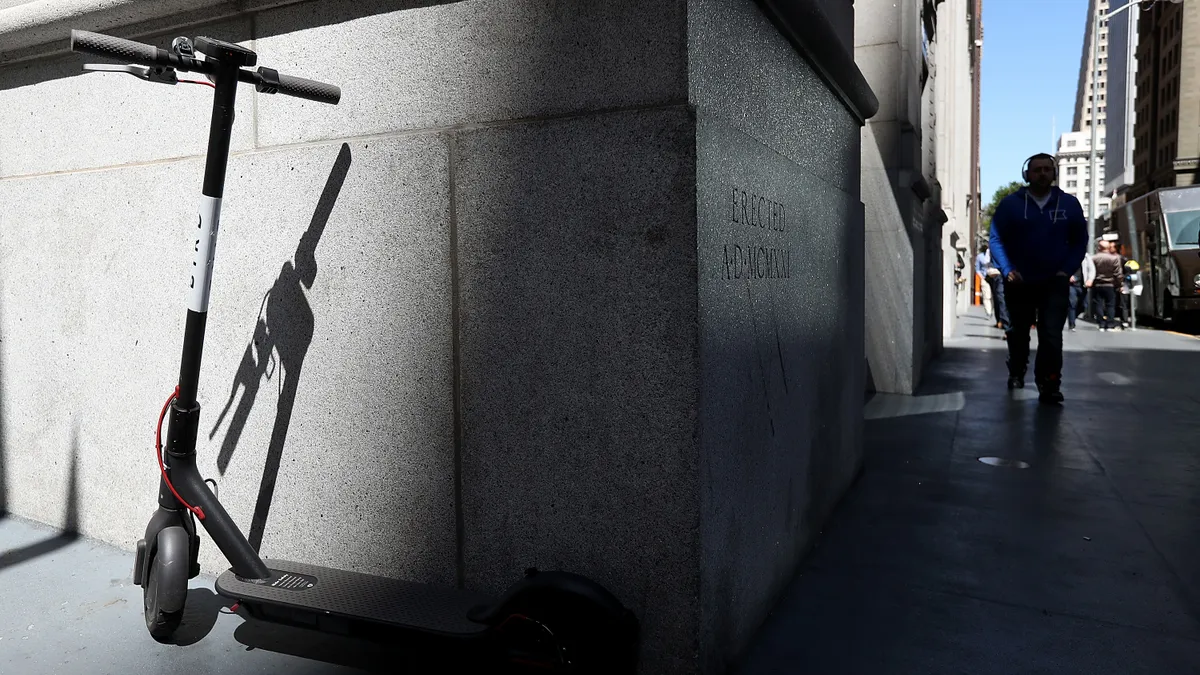Dive Brief:
- Bird has filed for Chapter 11 bankruptcy, hoping to strengthen its balance sheet and better position the company for long-term, sustainable growth, the shared micromobility company announced Dec. 20 in a press release.
- The company, which says it is North America’s largest micromobility operator, “will operate as usual during this process, maintaining the same service for its riders and upholding its commitments to partner cities, fleet managers, and employees,” the release says.
- Bird isn’t the only micromobility company facing financial turbulence: Superpedestrian is shutting down its U.S. shared e-scooter operations on Dec. 31 due to financial woes, TechCrunch reported on Dec. 15. Plus, the Nasdaq on Dec. 18 delisted Micromobility.com, formerly Helbiz, for failing to maintain minimum share prices and equity requirements.
Dive Insight:
Shared bike and e-scooter use is recovering from pandemic lows, according to a November report from the National Association of City Transportation Officials. Even so, NACTO warned that increasing costs for users and “volatility amongst private-sector operators” are causes for concern.
Founded in 2017, Bird had a promising start after becoming one of the fastest startups to reach a $1 billion valuation. The company operates in hundreds of cities worldwide.
However, Bird’s Chapter 11 bankruptcy filing comes as little surprise to those who have kept a close eye on the company this year. Bird’s stock plunged, and in an August earnings report the company said it may need to downsize or seek bankruptcy protection if it couldn’t raise capital or generate sufficient cash.
In September, however, Bird acquired competitor Spin through a $19 million deal with Skinny Labs, Spin’s parent company, and promptly issued layoffs two weeks later to reduce redundancies in roles and scope. Just after the Spin acquisition, the New York Stock Exchange suspended trading of Bird Global stock and began delisting proceedings against the company, whose global market capitalization over a consecutive 30-day trading day period fell below at least $15 million.
Still, Bird Interim CEO Michael Washinushi maintained an optimistic outlook in the Dec. 20 news release. "We are making progress toward profitability and aim to accelerate that progress by right-sizing our capital structure through this restructuring,” he said in a statement. “We remain focused on our mission to make cities more livable by using micromobility to reduce car usage, traffic, and carbon emissions."
Bird will use the bankruptcy proceeding to sell its assets and has entered into a “stalking horse” agreement with its existing lenders, which sets a floor for the purchase price. The company expects to complete the sale process in the next 90 to 120 days, according to the news release.
Bird’s European and Canadian businesses are not part of the Chapter 11 bankruptcy filing.












